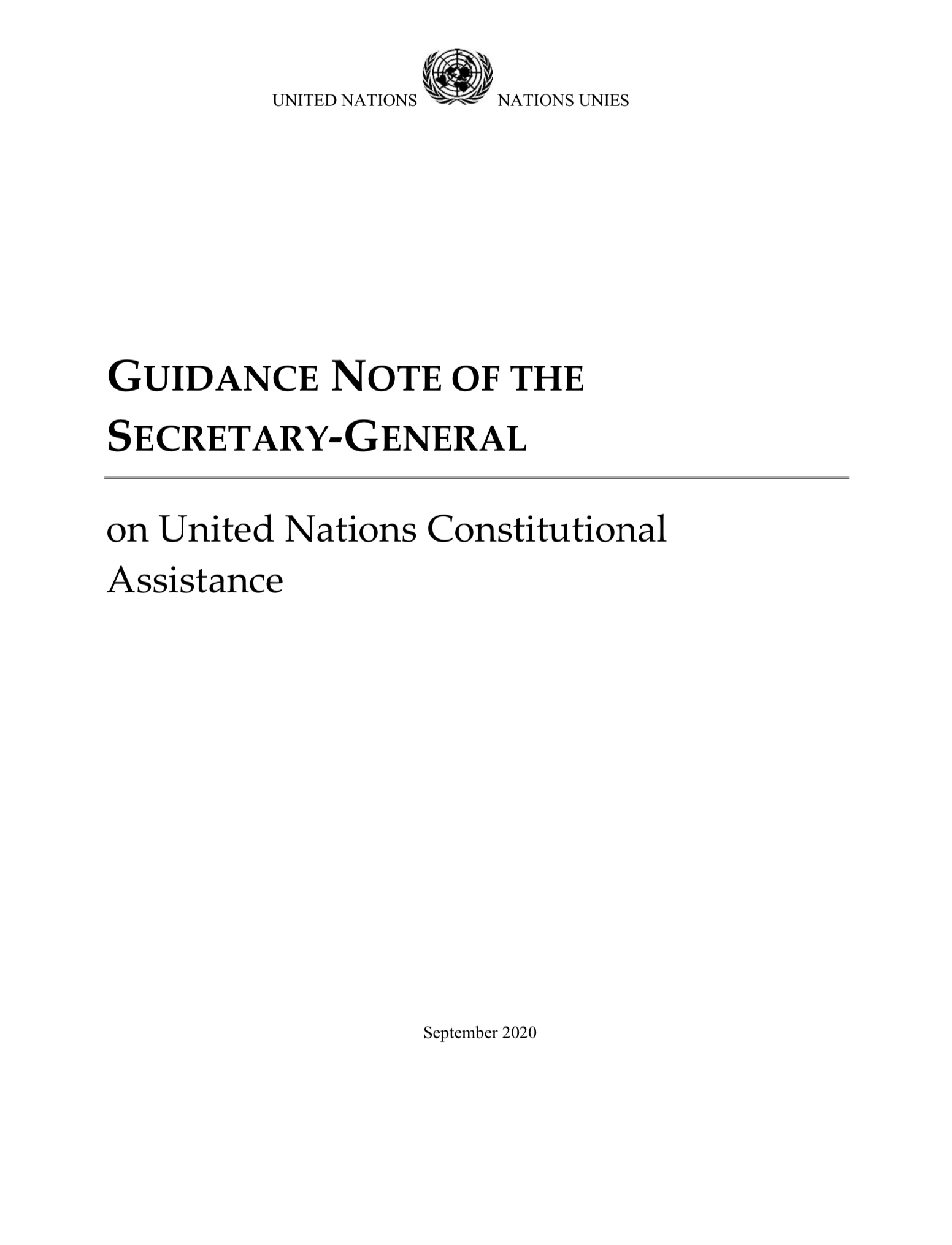Esta sección contiene documentos de orientación y política de las Naciones Unidas para la creación y gestión de iniciativas de mediación. Este material ofrece a los profesionales consejos prácticos y opciones para abordar algunos de los principales retos y áreas temáticas de la mediación con el fin de maximizar las posibilidades de éxito.
Documentos de Orientación de las Naciones Unidas
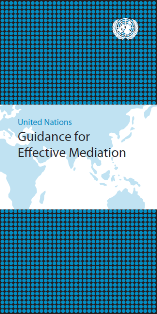
El Secretario General elaboró las Directrices de las Naciones Unidas para una mediación eficaz en respuesta a una petición de la Asamblea General (A/RES/65/283). Las Directrices establecen una serie de fundamentos clave que deben tomarse en consideración en los procesos de mediación: preparación; consentimiento; imparcialidad; carácter inclusivo; implicación nacional; derecho internacional y marcos normativos; coherencia; coordinación y complementariedad del esfuerzo de mediación; y acuerdos de paz de calidad.
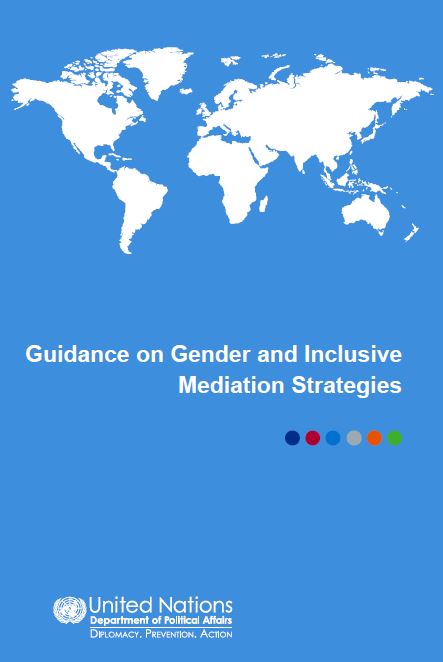
Esta Orientación del DAPCP tiene por objeto informar a los mediadores y a sus equipos, así como a las partes en conflicto, sobre los principios y estrategias para la inclusión efectiva de las mujeres, así como una perspectiva de género, en los procesos de mediación. La Orientación aborda la preparación de la mediación, el diseño del proceso y cuestiones sustantivas como los arreglos de seguridad, la participación, las constituciones, el lenguaje y la aplicación de los acuerdos de paz con una perspectiva de género.
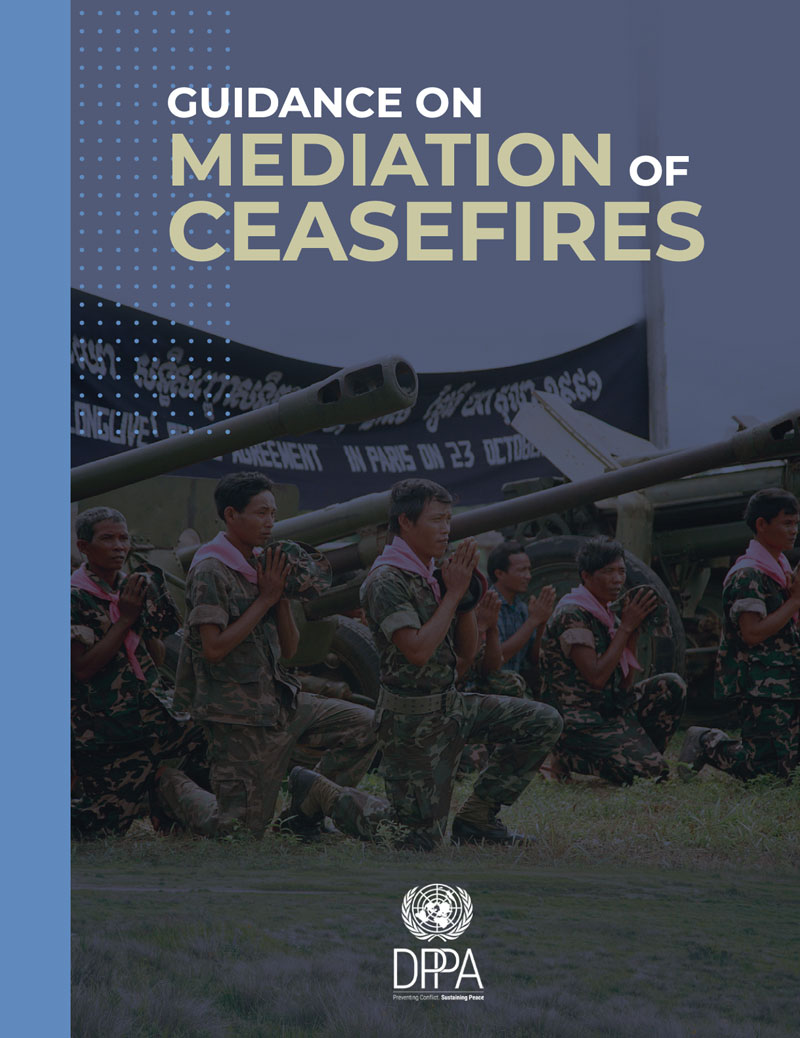
Esta Guía está pensada como apoyo a los altos dirigentes y al personal de las Naciones Unidas, a los mediadores y facilitadores de las Naciones Unidas y externos, así como a sus equipos, a las partes en conflicto, a los representantes de los Estados y de las organizaciones regionales, a las organizaciones no gubernamentales nacionales e internacionales, a los grupos de mujeres y a otras partes interesadas de los procesos de paz.
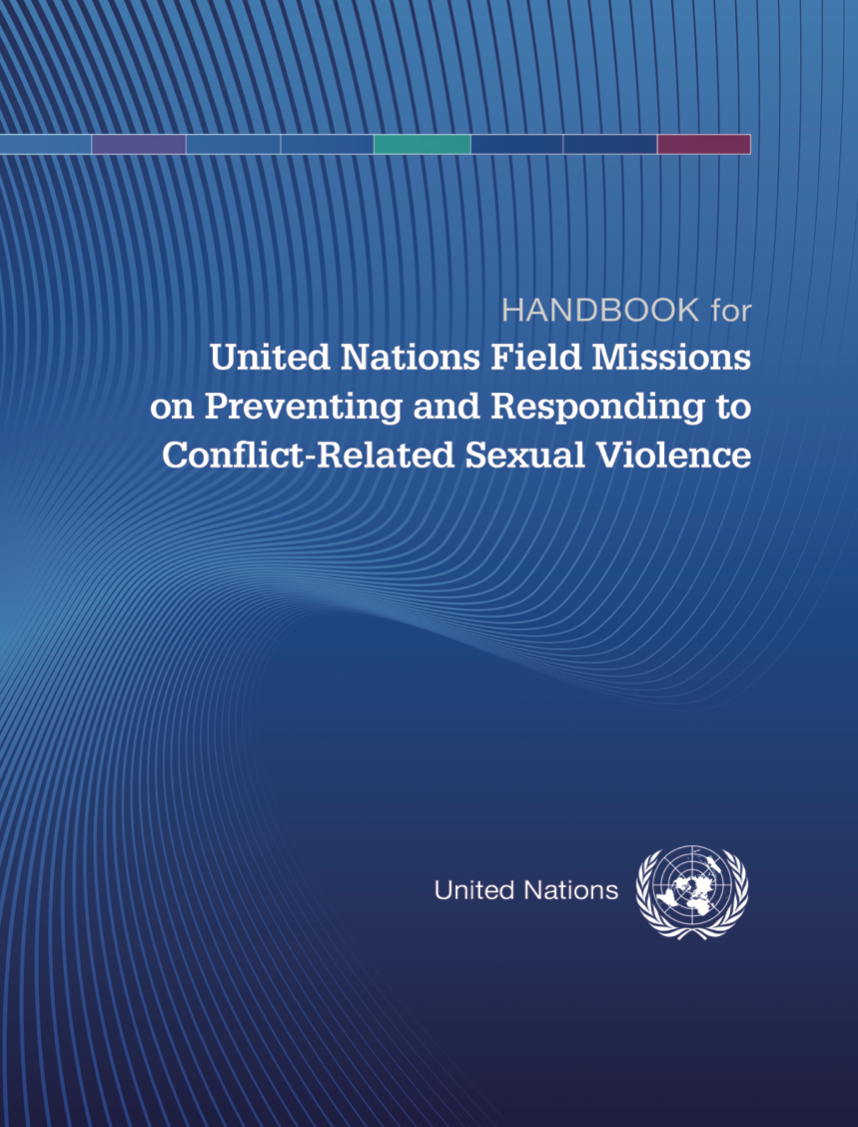
This Handbook is intended to serve as a practical guide to support the implementation of the CRSV mandate by United Nations Field Missions, including Peacekeeping Operations and Special Political Missions. It serves both as a guidance for civilians, military, and police personnel deployed to United Nations Field Missions and as a pre-deployment orientation tool for future Mission personnel.
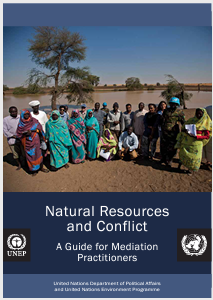
The guide aims to inform mediators and stakeholders addressing conflicts over natural resources — whether those disagreements are violent, have the potential to turn violent, or are part of a larger political struggle, including within a peace process. It draws on the field experiences of mediators and mediation experts. It also features lessons learned from UNEP’s work on environmental diplomacy in different conflict affected countries, with a particular focus on how to use impartial technical knowledge to equalize stakeholder information in a mediation process.
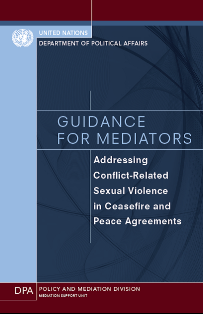
Las Naciones Unidas exigen a sus mediadores que aborden la violencia sexual relacionada con los conflictos. Esta Guía dirigida a los mediadores y a sus equipos contiene principios y estrategias para incluir esta preocupación crítica en el marco de la consolidación de la paz y la seguridad en los acuerdos de cese al fuego y de paz.
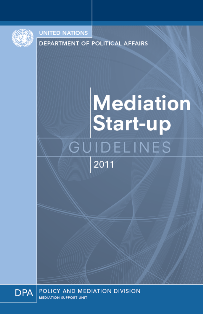
The DPPA Mediation Start-up Guidelines seek to provide guidance to managers, desk officers and field staff of the UN Department of Political Affairs (DPPA) on the start-up and establishment of mediation initiatives led, co-led or supported by the United Nations. Their purpose is to consolidate DPPA's institutional knowledge on strategy development, planning, support and coordination aspects of mediation initiatives.
Notas de Política y Práctica e Informes Ocasionales
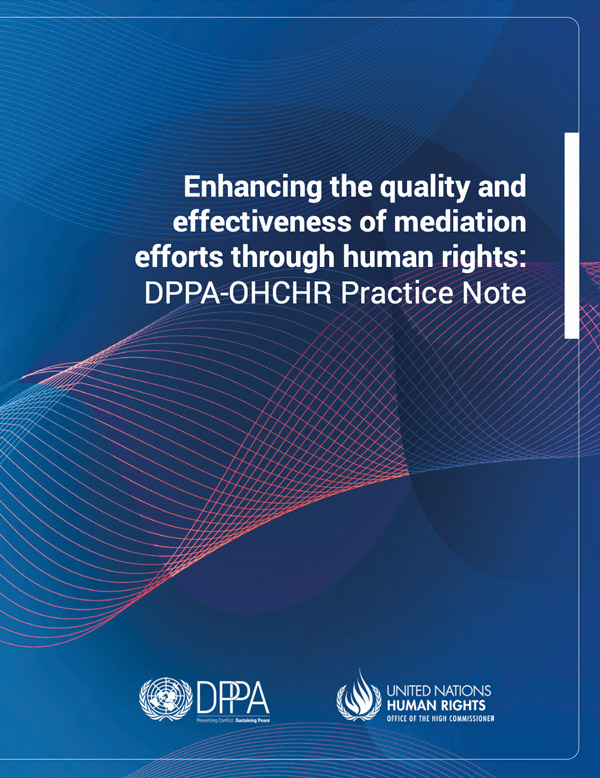
Esta nota práctica, fruto de la colaboración entre el DAPCP y la OACNUDH, indaga en estrategias prácticas y en ejemplos del mundo real para ayudar a los mediadores y profesionales de los derechos humanos a integrar los principios y consideraciones de derechos humanos en su trabajo en general y, en particular, en cada paso de los esfuerzos de mediación que realizan. La nota muestra que los derechos humanos ofrecen soluciones prácticas a muchas de las cuestiones difíciles que los mediadores intentan abordar.
A New Agenda for Peace outlines Secretary-General António Guterres' vision for multilateral efforts for peace and security, based on international law, for a world in transition. It reflects on today’s peace and security threats – including the changing conflict landscape; persistent violence outside of conflict environments; the potential weaponization of new technologies; rising inequalities; shrinking civic space; and the climate emergency – and emphasizes how violations of the UN Charter and a pushback against human rights, in particular women’s rights, represent a significant normative challenge.
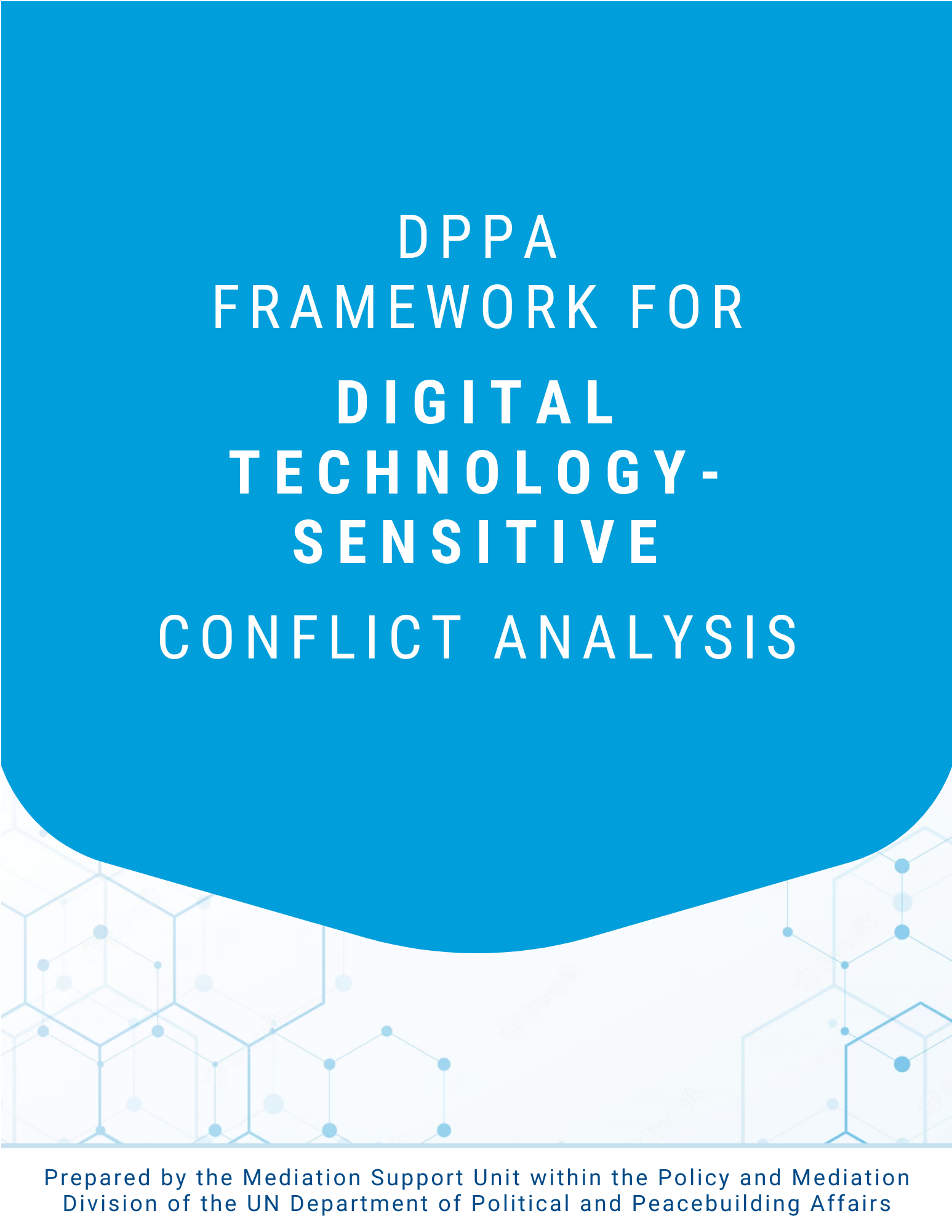
Digital technologies are also changing the character of conflict as parties increasingly rely on them to advance their objectives. Mediators and their teams need to consider additional factors such as the digital ecosystem of a given setting and how digital technologies and related data issues influence the power dynamics of a conflict. To address these new developments and help mediators and political affairs officers navigate the issues, the DPPA Policy and Mediation Division has prepared a Framework for Digital Technology-sensitive Conflict Analysis.
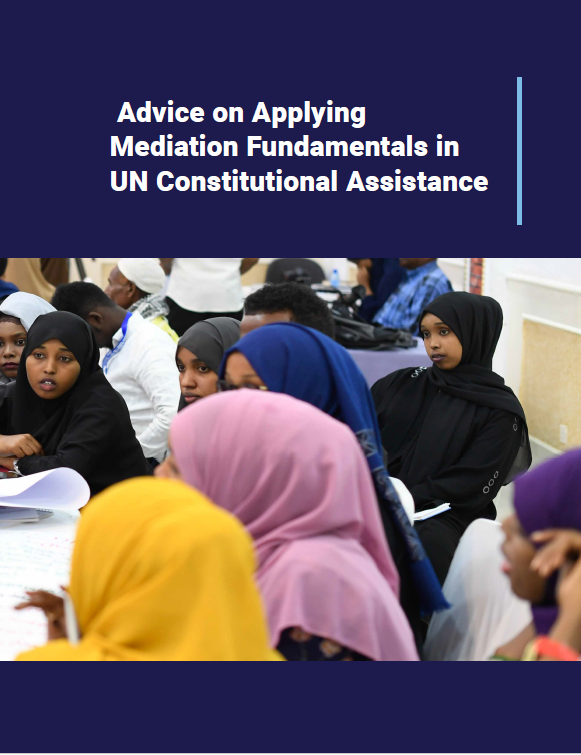
This paper captures key lessons learned in the author's two-year secondment to the Department of Political and Peacebuilding Affairs (DPPA) Policy and Mediation Division, Mediation Support Unit, during which the author supported constitution-making processes and provided advice on handling constitutional issues.
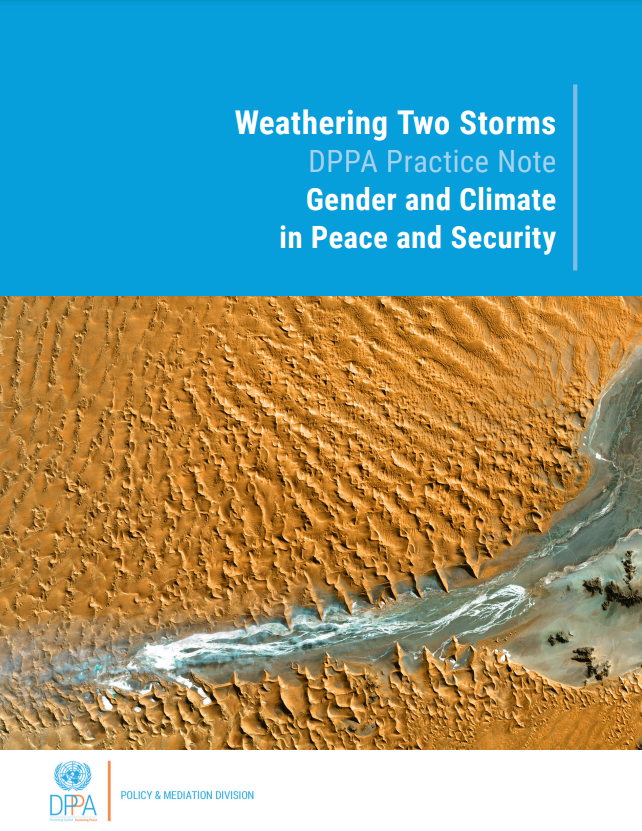
The world is facing unprecedented risks from climate change. Droughts, erratic rainfall, and extreme weather events affect people, livelihoods, and economies across the world.
The subject of justice and accountability raises significant challenges in peace mediation contexts, as well as in the implementation phase following a peace agreement. These challenges usually cannot be avoided and simply must be worked through. However, there are steps that the United Nations can take so that its staff and representatives are in a stronger position to plan, to respond to the substantive questions that arise and to better coordinate with each other. This paper sets out some of these challenges, and offers both policy and strategy ideas for addressing them.
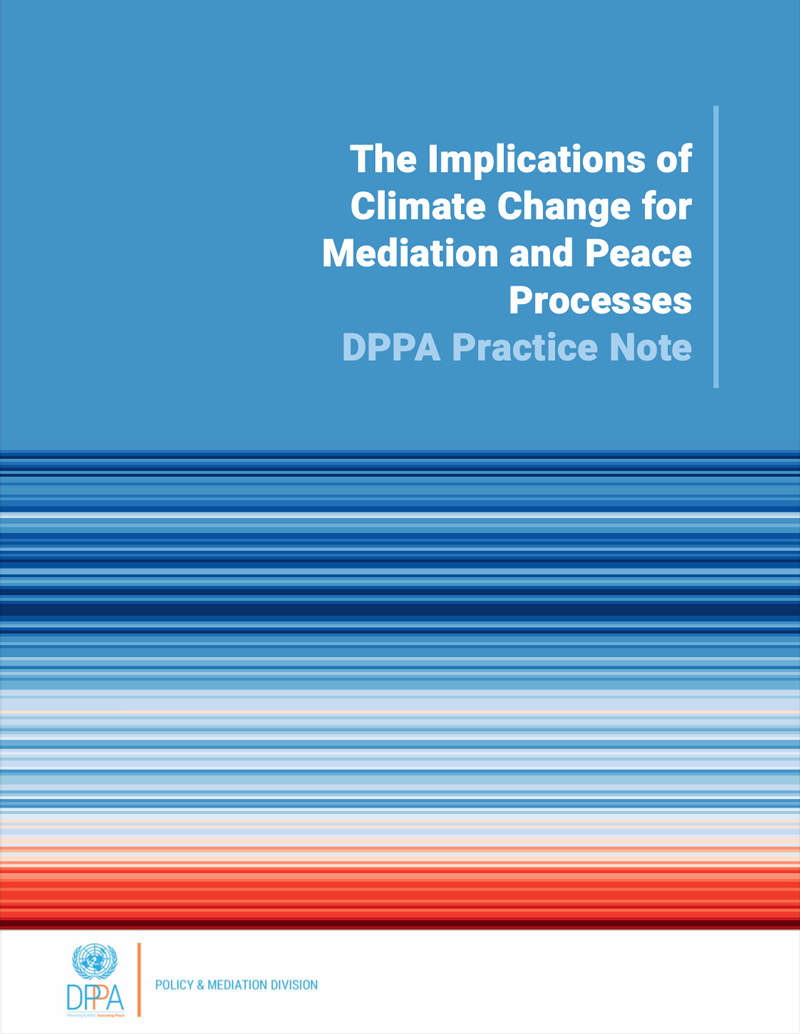
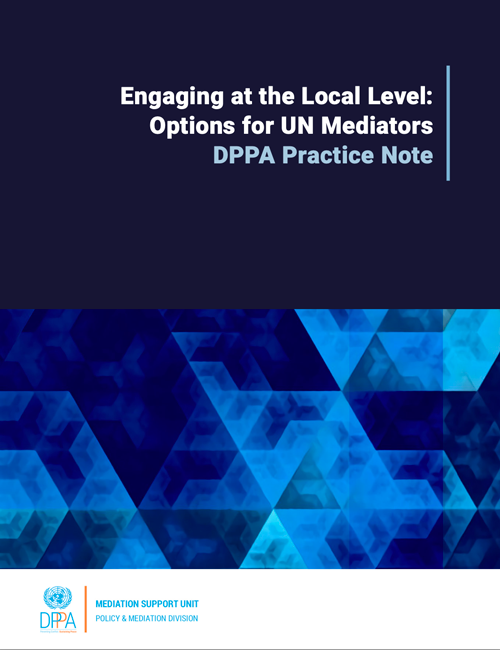
This Practice Note outlines circumstances under which more direct involvement with local conflicts and mediation processes might be strategically relevant for United Nations mediators working on national political processes.
This paper highlights that peace processes are an important, albeit atypical, arena for policymaking, generally and in relation to transitional justice. This paper examines how the concept of
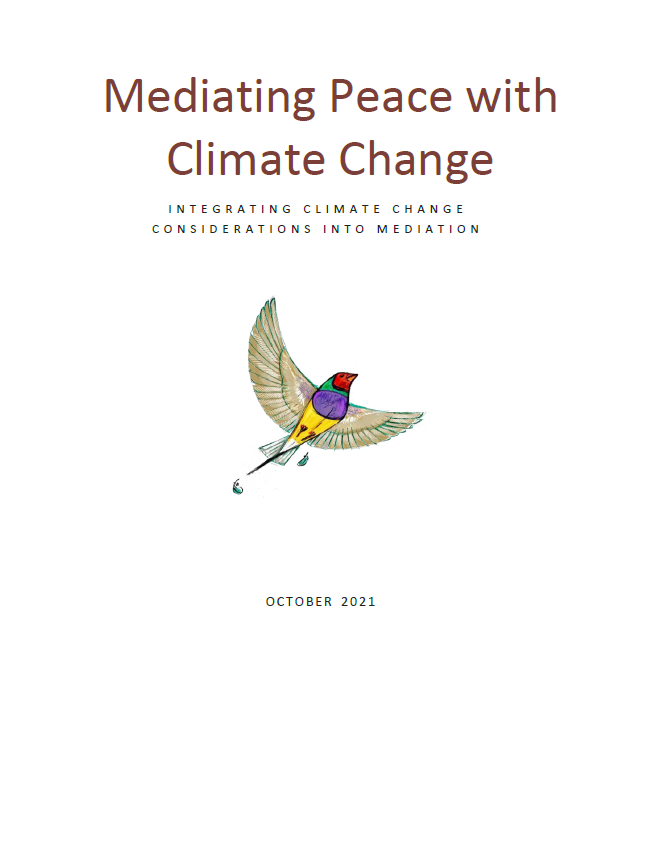
This report is a contribution to ongoing efforts in the United Nations Department of Political and Peacebuilding Affairs (DPPA) to address the impact of climate change on mediation and preventive diplomacy. It was commissioned by DPPA with support from the Government of the Republic of France and prepared by Alex Grzybowski and Chanda Hunnie of Pacific Resolutions. Views expressed in the report are those of the authors and do not necessarily reflect those of DPPA.

Gender-sensitive conflict analysis is the systematic study of the gendered causes, structures, stakeholders and dynamics of conflict and peace. Addressing common gender biases in conflict analysis will provide a more accurate and comprehensive understanding of the root causes, triggers and drivers of conflict, and enable more informed and effective action.
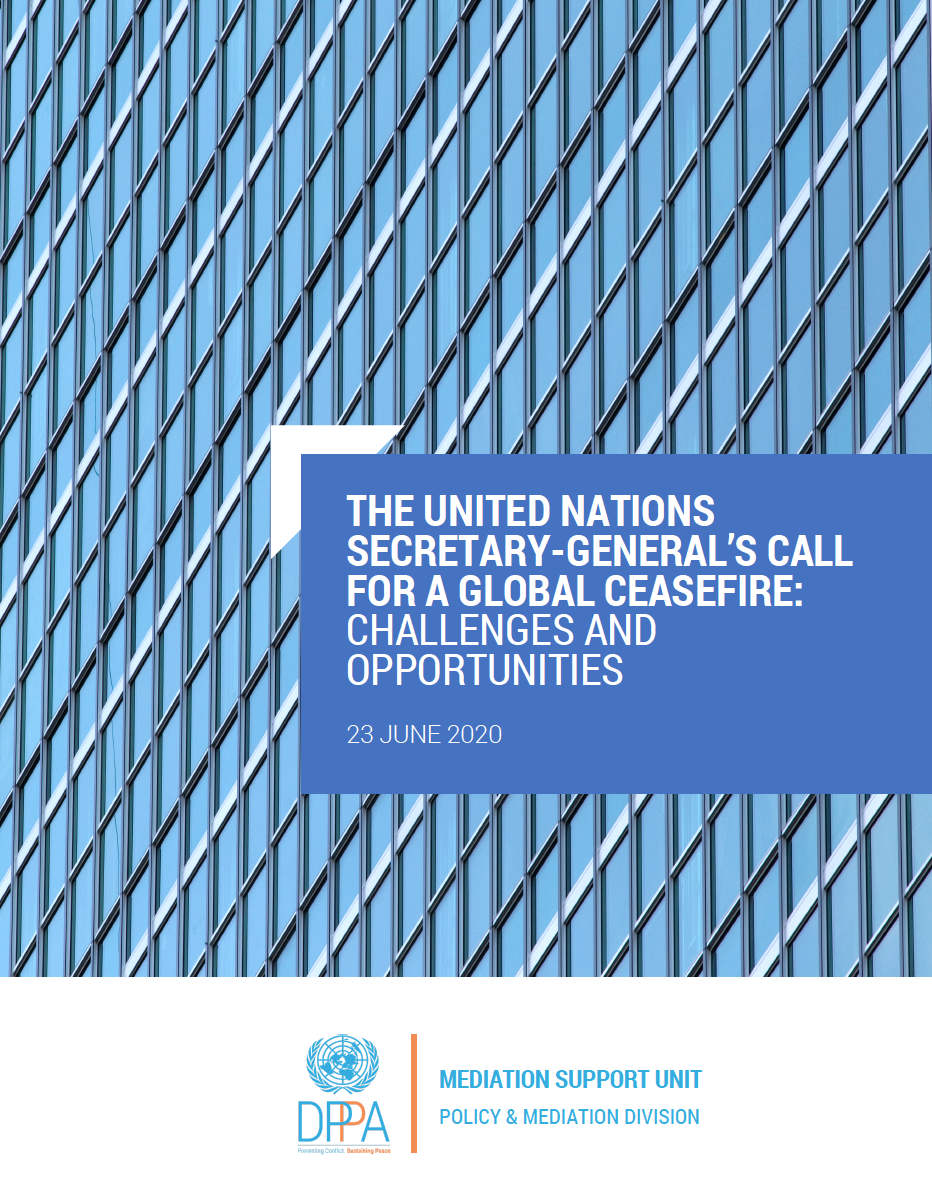
On 23 March 2020, Secretary-General António Guterres issued an appeal for an immediate global ceasefire to help create conditions for the delivery of lifesaving aid, reinforce diplomatic action and bring hope to places that are among the most vulnerable to the COVID-19 pandemic. As of 23 June 2020, the Secretary-General's call had received support from 179 Member States and one non-member observer State, as well as a range of regional organizations and international and local civil society actors.
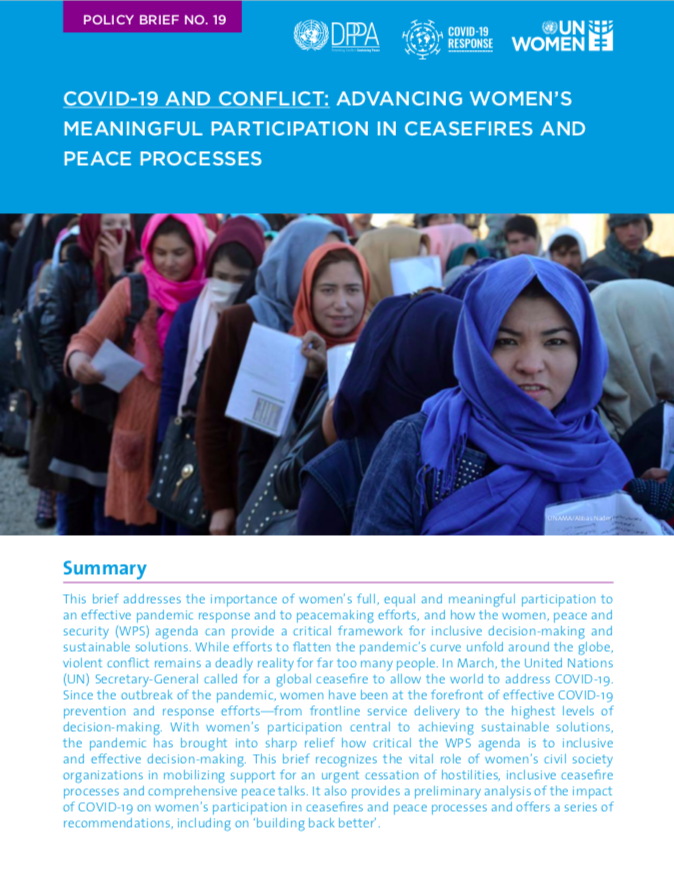
Esta Política aborda la importancia de la participación plena, igualitaria y significativa de las mujeres en esfuerzos eficaces de establecimiento de la paz y respuesta a pandemias. En ella se expone cómo la agenda sobre las mujeres, la paz y la seguridad puede constituir un marco fundamental para un proceso decisorio inclusivo y soluciones sostenibles.
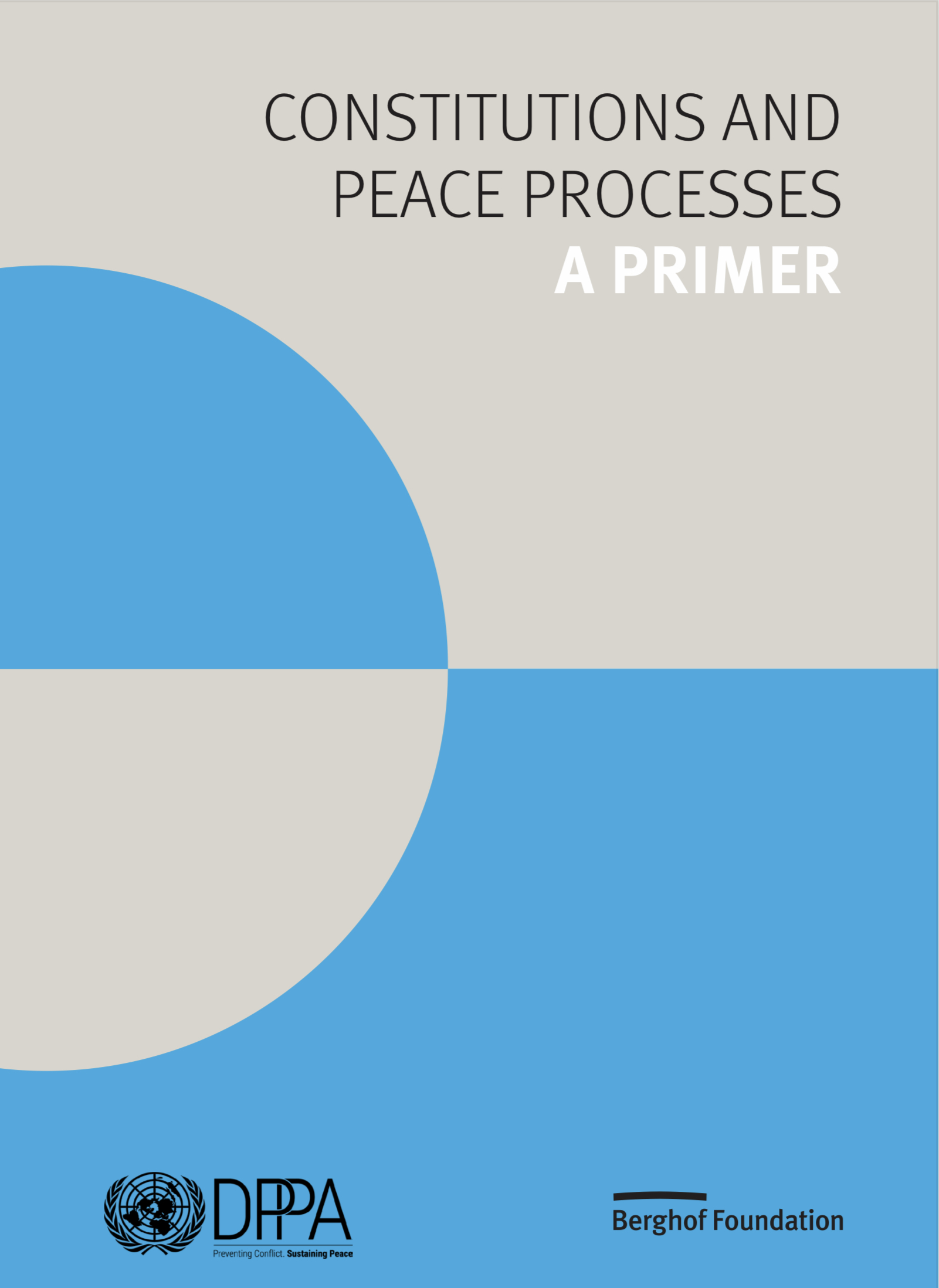
The Primer identifies the challenges and opportunities at the nexus of peace processes and constitutions and constitution making, including lessons learned, policy options and their implications for sustaining peace.
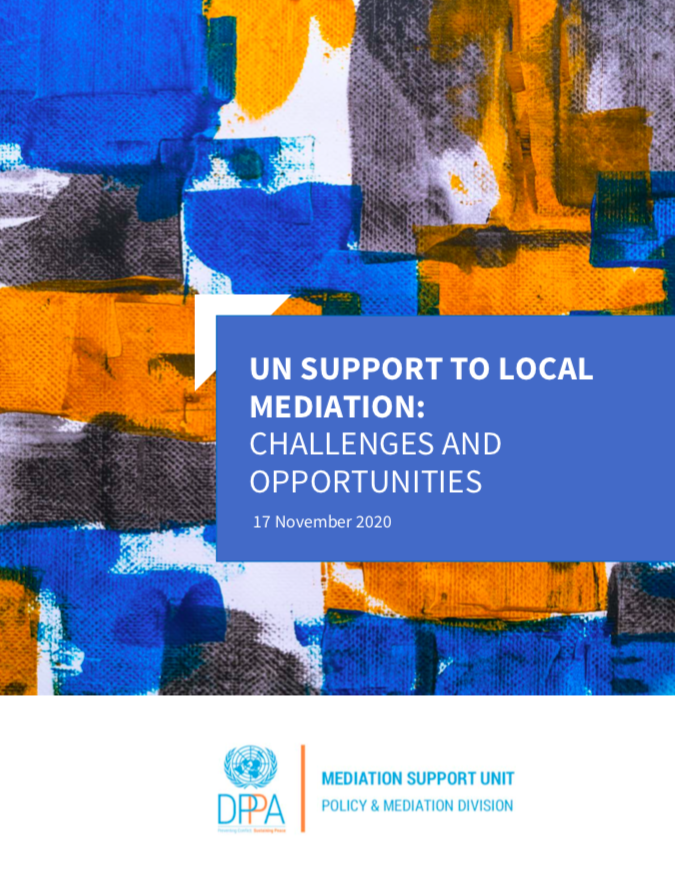
This publication dives into some of the challenges and opportunities presented by UN support to local level mediation and dialogue processes, and discusses its strategic relevance to the Organization’s overall peacemaking efforts.
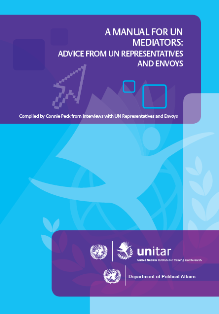
The main purpose of this manual is to familiarize new UN mediators with the range of skills used by their predecessors to carry out third-party mediation. The manual describes the current context in which UN mediation and “good offices” is carried out, offers advice and lessons from previous representatives and envoys, and suggests how the UN’s Mediation Support Unit can help to support the work of UN mediators.
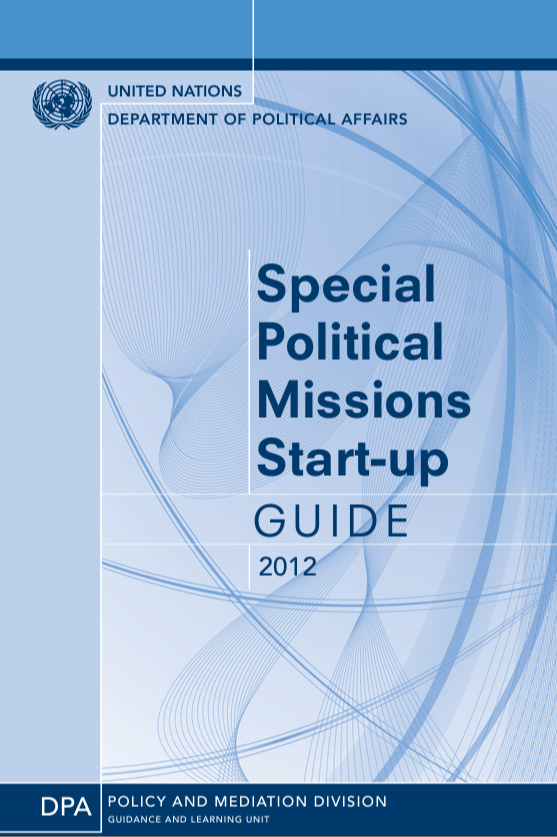
The Special political missions (SPMs) Start-up Guide provides essential information and guidance on the substantive and administrative tasks that need to be carried out to establish a field-based SPM, such as mission planning, communication, budget processes, human resources, logistics, security and legal issues. It is an essential document for all DPPA staff, and for DPPA desk officers and senior managers tasked to support the establishment of an SPM in particular.

